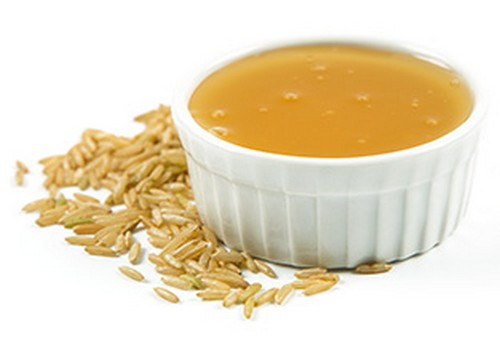Introduction:
Brown rice syrup is a sweetener derived from brown rice. It has gained popularity in recent years as a potentially healthier alternative to traditional sweeteners like table sugar or high fructose corn syrup. However, there are mixed opinions about its health benefits and potential drawbacks. In this comprehensive guide, we will explore the various aspects of brown rice syrup, including its composition, nutritional profile, potential benefits, and possible concerns. By the end, you should have a better understanding of whether brown rice syrup is a good or bad choice for your dietary needs.
Composition and Nutritional Profile:
Brown rice syrup is made by breaking down cooked brown rice starch into simple sugars through enzymatic processes. The resulting syrup is primarily composed of glucose, maltose, and complex carbohydrates. Compared to table sugar, brown rice syrup contains fewer calories and has a lower glycemic index, which means it causes a slower rise in blood sugar levels. It also contains trace amounts of minerals like potassium, magnesium, and zinc. However, it lacks the vitamins and fiber present in whole grains.
Potential Benefits:
- Lower Glycemic Index: The low glycemic index of brown rice syrup makes it an appealing choice for individuals seeking to manage blood sugar levels. It can be a suitable option for those with diabetes or individuals aiming to reduce their overall sugar intake.
- Allergen-Free: Brown rice syrup is naturally free of common allergens such as gluten, soy, and dairy. This makes it a viable alternative for individuals with specific dietary restrictions or food allergies.
- Natural and Less Processed: Unlike some artificial sweeteners, brown rice syrup is made from natural ingredients and undergoes minimal processing. It does not contain any artificial additives or preservatives, which can be a positive aspect for those seeking a more natural sweetener option.
Possible Concerns:
- High in Calories and Carbohydrates: While brown rice syrup has a lower glycemic index than table sugar, it still contains a significant amount of calories and carbohydrates. It is crucial to consume it in moderation, especially for individuals on a restricted-calorie diet or those with diabetes.
- Limited Nutritional Value: Although brown rice syrup contains trace amounts of minerals, it lacks the essential vitamins and fiber present in whole grains. Relying solely on brown rice syrup for nutritional needs can result in deficiencies if not balanced with a varied and nutrient-rich diet.
- Arsenic Contamination: Rice, including brown rice used to make brown rice syrup, can contain higher levels of arsenic compared to other grains due to environmental factors. While the arsenic content in brown rice syrup is generally lower than in brown rice itself, it is still a concern. Choosing organic brown rice syrup and diversifying your grain choices can help mitigate this risk.
Conclusion:
Determining whether brown rice syrup is good or bad depends on various factors such as individual health needs, dietary goals, and overall diet quality. While it offers potential benefits like a lower glycemic index and allergen-free properties, it should be consumed in moderation due to its calorie and carbohydrate content. It is not a significant source of essential nutrients, so relying solely on brown rice syrup for nutritional needs is not recommended. Additionally, the potential risk of arsenic contamination should be taken into account. As with any sweetener, it is advisable to consult with a healthcare professional or a registered dietitian to determine the best choice for your specific circumstances and goals.
- Personal Kratom Capsule Guide: Honest Reviews & Recommendations for Every Need - August 16, 2024
- Brown Rice Syrup: Good or Bad? - July 19, 2023




